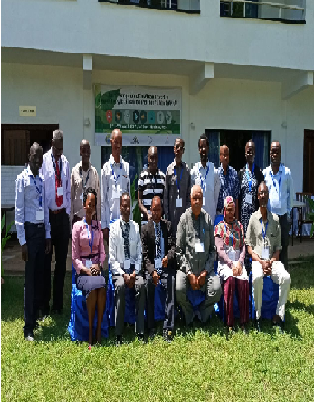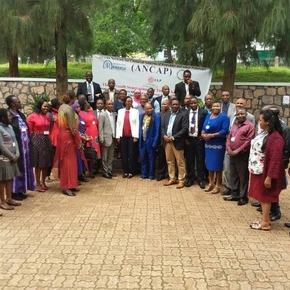Research Focus
Persistent organic pollutantsTo initiate, develop and promote research in the area of chemical analyses of pesticides and other pollutants in the Africa region for pollutants free world
Membership Chapter
Member CountriesThe Network has drawn membership from all over the region. The member countries are: Tanzania, Kenya, Zibambwe, Nigeria, Sudan, Ethiopia, Zambia
Partners
Collaboration and partnersANCAP network events have always been in collaboration with institutions, researchers as well as sponsors all from regional and international levels.
Full
For ScientistsScientist engaged in any laboratory aspect of pesticide chemical analysis research
- Publications
- Conferences
- symposiums
- Newsletter
- Presentations
Associate
For ResearchersResearchers working in the field of chemical analysis of pesticides in a laboratory.
- Publications
- Conferences
- symposiums
- Newsletter
- Presentations
Honorary
For outstanding individualsIndividuals with substantial contribution to the development of pesticide research.
- Publications
- Conferences
- symposiums
- Newsletter
Coorporate
For corporateCooperate membership may be granted to co-oporation, company or institution upon nomination by the Board.
- Publications
- Conferences
- symposiums
- Newsletter
Major Achievements
Since we started, we are proud to have achieved in the area of pesticides analysis.
The network's establishment (through the most dedicated logistical and financial support of IPICS) has provided coordination of the human resources capacity in chemical analysis of pesticide research within the region and created an interactive atmosphere among researchers in the region and promotion of south-south and north-south collaboration. The regional networking approach in chemical analysis of pesticides research has offered many opportunities, among them the following:.
Promotion of the regional research approach to solving common problems.
Fostering of intra-regional capacity and capability for the training of both M.Sc. and Ph.D. students.
Our future plans
-
Development of the Post-Graduate Program
School of Tropical Pesticide Management (STPM) is held annually with an aim of bringing together students in pollutants analysis.
-
Development of Joint Research Proposal
Development of a joint research proposal based on a concept paper involving four countries, viz., Ethiopia, Kenya, Tanzania and Uganda, to be sent to the University of Florida. The proposal will be on Persistent Organic Pollutants (POPs).
-
Development of Distance Education
The need for distance education courses in undergraduate, graduate and in-service programs has been noted by the network. Courses that are appropriate for the region, involving students, farmers and farm workers.



